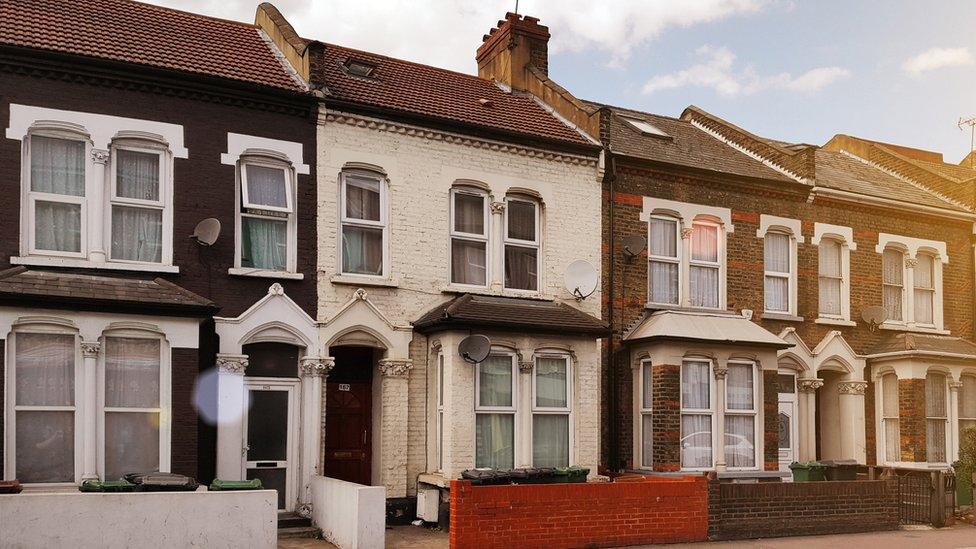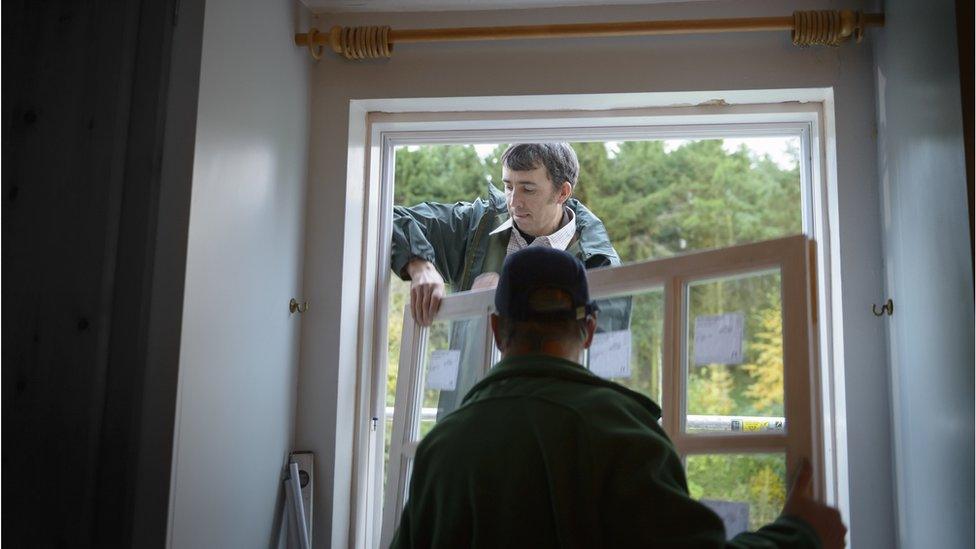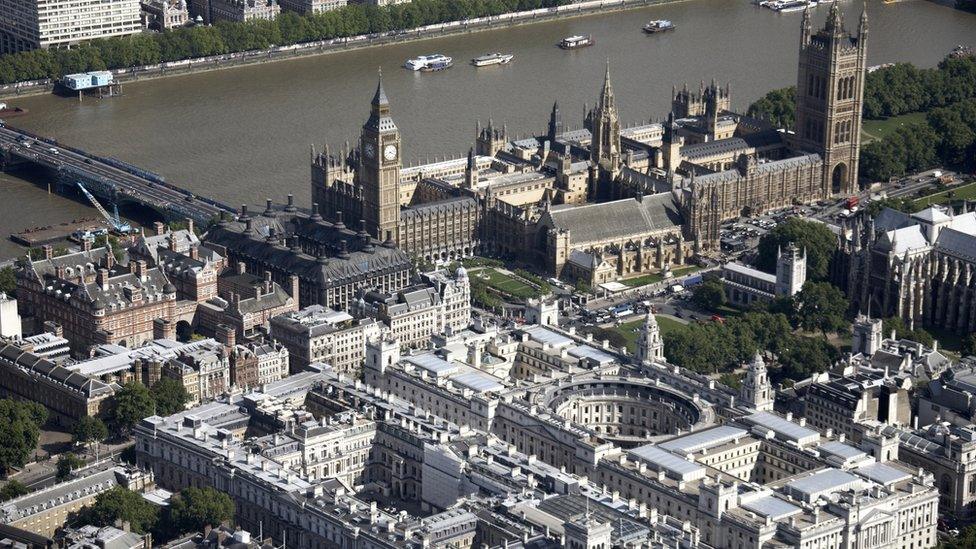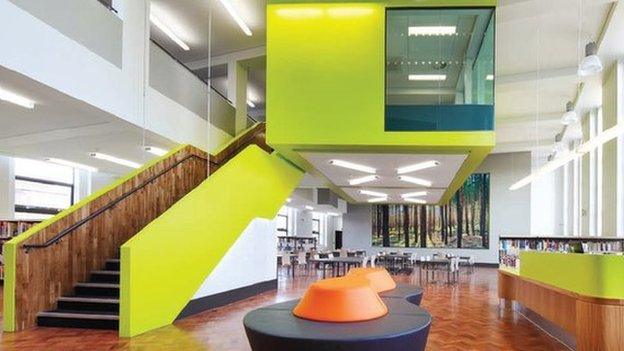London: Retrofitting homes is 'incredibly slow' say Greens
- Published

Retrofitting London's homes isn't happening on the "scale" the mayor wants
Not nearly enough homes are being insulated in London for the capital to meet its 2030 net zero target, it has been claimed.
A report by the Greens at City Hall said retrofitting is happening at an "incredibly slow rate" leaving London years behind.
It blamed a lack of government funding and leadership from mayor Sadiq Khan.
City Hall said retrofitting wasn't happening on the "scale" the mayor wanted, but thousands had benefited.
More than two thirds of London's carbon emissions come from its homes and workplaces.
Retrofitting is the process of installing new measures to improve the energy efficiency of homes like insulation and double-glazing, or by generating cleaner energy through measures like solar panels and heat pumps.
In 2021 Mr Khan vowed to lead a "retrofit revolution".
A recent analysis by Element Energy suggested 210,000 homes need to be retrofitted each year until 2030 for the capital to reach net zero.
But the Greens' report said since 2018 only 4,808 privately owned and rented homes were upgraded under the Warmer Homes Programme - less than 1% of what is needed.
Council home upgrades
To insulate council homes 12 London authorities were given £24m through the Social Housing Decarbonisation Scheme.
Only four councils accessed the funds and in the first year 157 homes were retrofitted using less than 5% of the money.
Recently the pace has quickened with 755 homes retrofitted in the last six months. But four councils have still not upgraded any homes.

Installing double-glazing is one example of retrofitting for energy efficiency
Green Assembly member Zack Polanski said: "Londoners are already paying the price for the absence of the mayor's retrofit strategy - he needs to seize this issue, not revert to empty rhetoric and greenwashing his policies.
"The mayor's hands-off approach to retrofitting simply does not reflect the urgency of the task at hand.
"While the Government must up its investment in retrofit, this doesn't mean the mayor can sit on his hands and wait."
Shortage of workers
The task of insulating the capital's homes falls to Retrofit London - a partnership between the mayor and London's councils.
The report "London's Retrofit Revolution: what's going wrong" said there was a shortage of workers with retrofit skills and the mayor has done little to help through his £320m adult education budget.
It claimed London has 16 "fully accredited retrofit coordinators" to provide training when 900 are needed, and only three of the 17 "green hub" colleges funded by the mayor teach retrofit courses.
"The mayor has failed to meaningfully develop the retrofit supply chain, or pathways into retrofit work, leaving London unable to meet current demand and ill-prepared for the arrival of more investment," Mr Polanski said.
Scale
A spokesperson for the mayor said he had ensured thousands of homes had been insulated, but didn't have the powers or budget to do it "at the scale he would like to see."
"It's right that this report recognises the barriers to delivering retrofit are due to the lack of ambition and investment from the Government," they said.
"We urgently need the Government to end the short term, stop-start cycle that has undermined supply chain delivery and negatively impacted the retrofit industry.
"Until this is resolved, and job opportunities are available, the incentives will not be in place to grow the skills base."
In the face of criticism over expanding the Ultra Low Emission Zone (Ulez), the mayor shelved plans for a "zero emission zone " in central London and ruled out road-user charging based on how far you drive - both measures which are said would help the capital achieve net zero.
But Catherine Barber, the GLA's assistant director for environment and energy, told a London Assembly meeting last week that "London's net zero by 2030 target is unchanged."
City Hall confirmed Mr Khan still thinks London can be net zero by 2030.
The Department for Energy Security and Net Zero has been contacted for comment.

Listen to the best of BBC Radio London on Sounds and follow BBC London on Facebook, external, X, external and Instagram, external. Send your story ideas to hello.bbclondon@bbc.co.uk, external
Related topics
- Published5 November 2022

- Published10 December 2013
